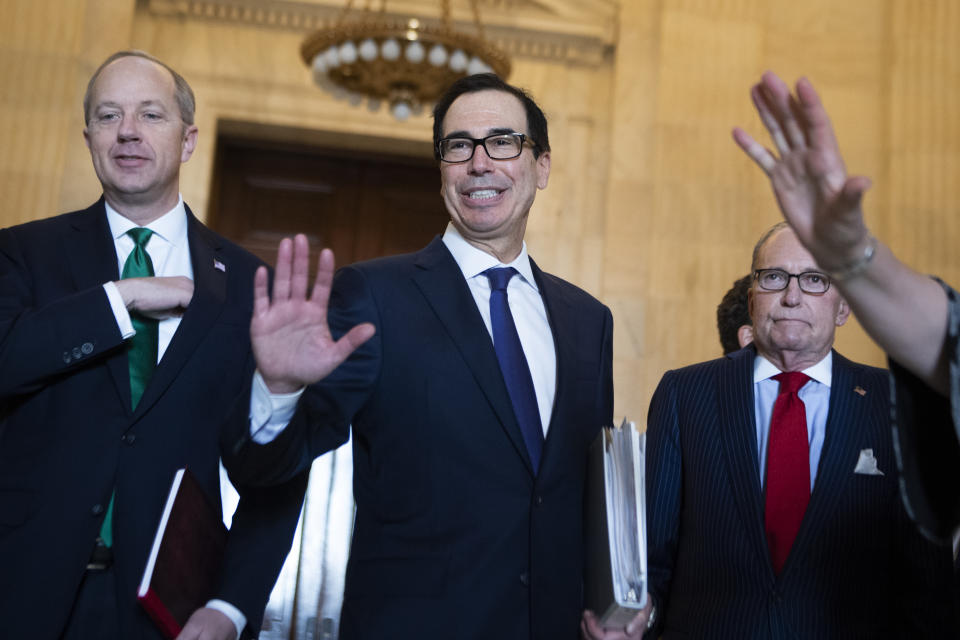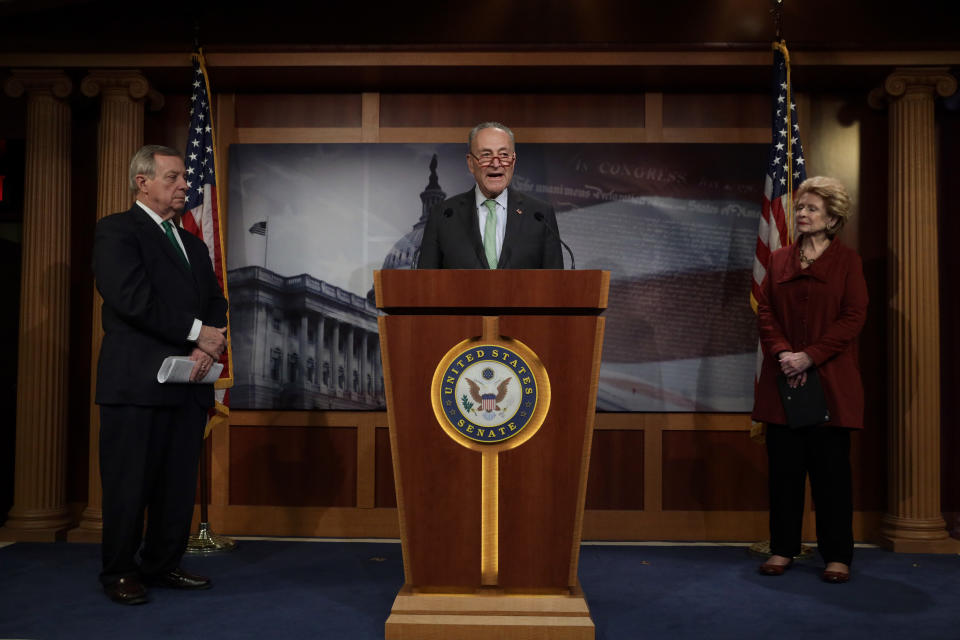Coronavirus checks: Here are 3 proposals to get money to Americans
The centerpiece of the upcoming phase 3 economic stimulus bill currently being debated in Washington appears likely to be direct assistance in the form of cold hard cash.
The question is: How much will you get and who’s eligible?
A Senate GOP plan aims for $1,200 for Americans making up to $75,000 annually (with smaller amounts for people making between $75,000 and $99,000). A Trump administration’s proposal starts with $1,000 with a second check months later. Some Senate Democrats, meanwhile, are calling for initial checks as big as $2,000 per American.
Here’s a closer look at the proposals floating around Capitol Hill:
The Senate GOP plan
On Thursday night, Senate Majority Leader Mitch McConnell released his plan.
Within the nearly 250-page bill is a proposal that would send up to $1,200 per person in a one-time payment. There would be an additional $500 per child. The payments would be based on income, so individuals making up to $75,000 annually ($150,000 in the case of a married joint return) would get the full $1,200.
Income is defined as wages, Social Security benefits, and any pension income. It appears that potential recipients would have the option of using their income from either 2018 or 2019 to calculate the benefits they receive.
The payments would gradually decline for individuals making between $75,000 and $99,000. Anyone making over $99,000 (or a family making over $198,000) would not get a check.
The plan will “put cash in the hands of the American people,” McConnell said. “The Senate is not going anywhere until we take action.”
Trump administration’s proposal
Treasury Secretary Steven Mnuchin laid out the White House’s ideas on Thursday.
His idea is that this provision will cost a total of about $500 billion. The White House wants checks in “two tranches.”
The first wave would be for $1,000 per person and $500 per child as soon as possible. “As soon as Congress passes this, we get this out in three weeks,” he said Thursday on Fox Business.
Then, six weeks later, the second set of checks would go out with identical terms ($1,000 per person/$500 per child) if the president still has a national emergency declared.

Mnuchin hasn’t said directly which Americans would be eligible for payments, but he has signaled an openness to limits.
“I think it's clear: We don't need to send to people who make a million dollars a year,” he said to reporters on Tuesday, adding, “we'll be talking about details afterwards.”
Differing ideas from Democrats
A group of liberal Democratic senators sent a letter on Wednesday to Senate leadership expressing their views on direct payments: Unsurprisingly, they want to go big.
They hope that “the first payment would be $2,000 per American,” followed by “subsequent payments stepping down over time.”
The letter says that payments would be phased out for higher-income taxpayers but didn’t give a specific income number.

Senate Democratic Leader Chuck Schumer expressed a certain amount of skepticism about the direct cash payments.
“That might help families cover rent, groceries, for a month. But then what?,” he said on the Senate floor on Thursday.
“A general unanimous view on our side” is that any direct payments would be in addition to other proposals like a massive expansion of unemployment insurance, he said.
Schumer’s idea for “unemployment insurance on steroids” would cover everyone, including gig workers, and the payments would be equal to – or close to – the salaries they’re replacing.
Washington is rushing to work out its differences and put together the bill in the days ahead. On March 6, President Trump signed into law the $8.3 billion emergency spending bill; then on March 18, the phase 2 deal was signed into law with a wider range of economic measures.
Phase 3 – as is becoming more and more clear – will dwarf the previous bills and, perhaps, any government stimulus bill in modern American history.
Ben Werschkul is a producer for Yahoo Finance in Washington, DC.
Read more:
Why businesses might ‘walk away’ from Trump’s coronavirus aid
Coronavirus response: Trump is delaying tax payments but you still have to file by April 15
'Americans need cash now': Washington debates how to spend $850B on coronavirus stimulus
Read the latest financial and business news from Yahoo Finance
Follow Yahoo Finance on Twitter, Facebook, Instagram, Flipboard, LinkedIn, YouTube, and reddit.

